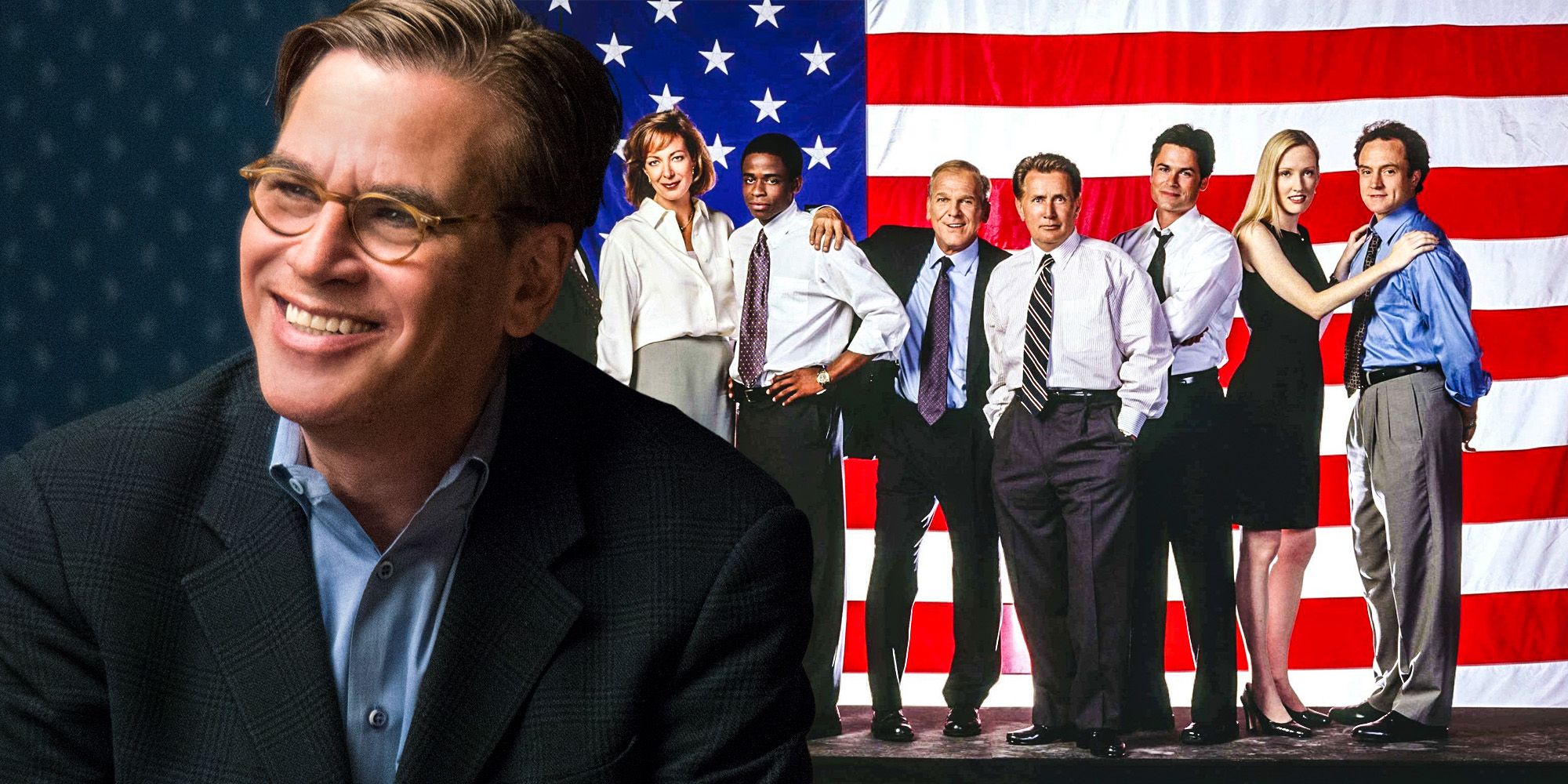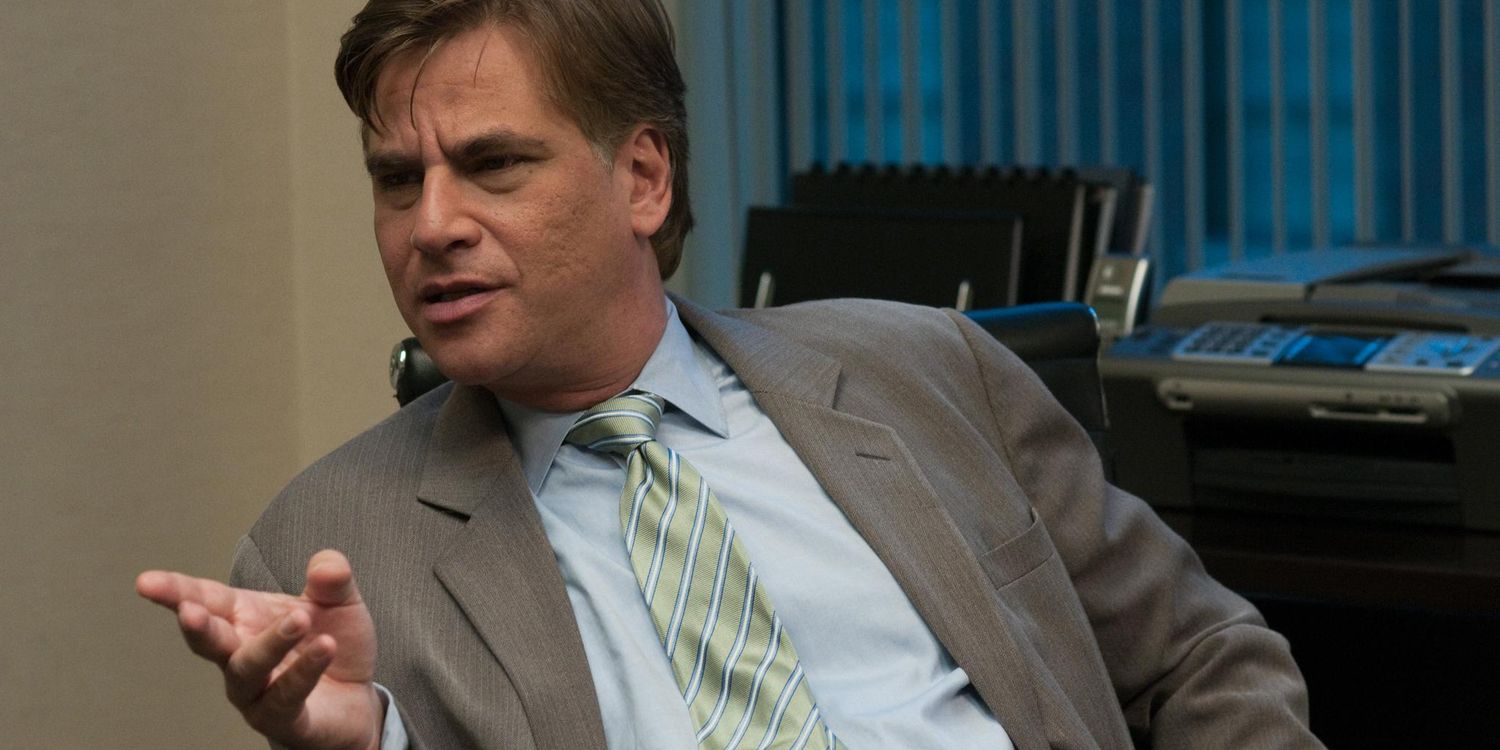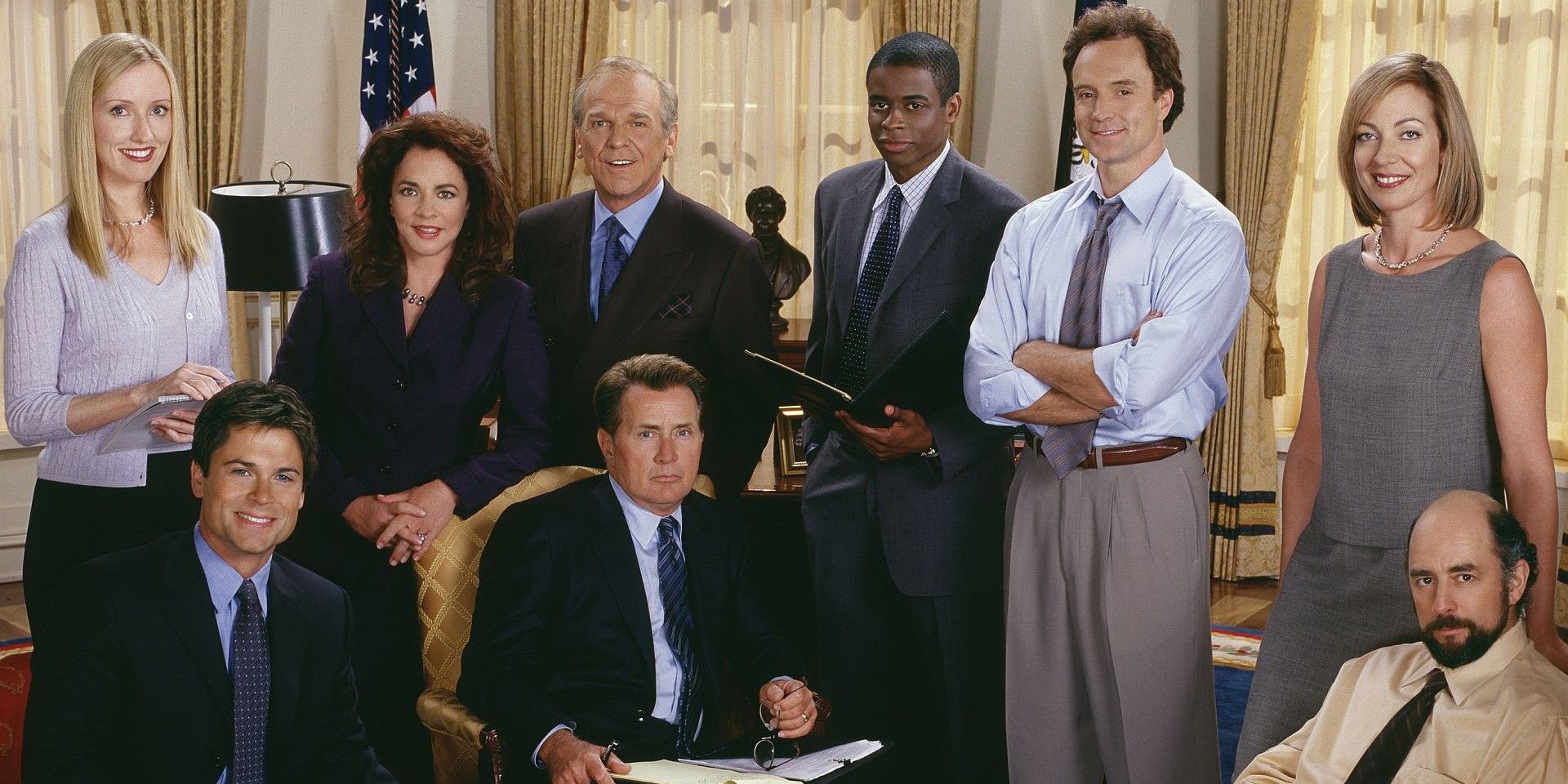Aaron Sorkin parted ways with his political drama The West Wing in 2003, and here's why did Aaron Sorkin left The West Wing after season 4 despite being the creative foundation for the entire show. After a spontaneous pitch during a meeting with producer John Wells in 1997, Sorkin's idea of a TV show centered on White House staff members became a possibility. The project was put on hold in light of the Clinton-Lewinsky scandal and concerns about an audience's ability to take a White House drama seriously, but NBC eventually gave it a green light, and the pilot episode of The West Wing premiered in 1999.
Sorkin remained the show's principal writer and one of its executive producers until he left after season 4. In the series, Martin Sheen played the President of the United States with West Wing's supporting cast featuring names like Allison Janney, Rob Lowe, Bradley Whitford, Dule Hill, and Stockard Channing. In his four years running the show, The West Wing picked up several Emmy and Golden Globe nominations, winning both the Golden Globes Award and Emmy for Best Drama Series in 2000. However, after Aaron Sorkin left The West Wing, it didn't get another Golden Globes nomination, but it did continue to earn notice at the Emmys. His reasons for leaving, however, show that it was the best decision for him at the time.
Aaron Sorkin's West Wing Exit Explained
Aaron Sorkin leaving The West Wing was a shock when the news broke in 2003 after the fourth season. Regarded by many as the pinnacle of political dramas, The West Wing follows the day-to-day matters of the federal government's Executive branch. At the helm of the ensemble cast is Martin Sheen, who plays the iconic fictional president Josiah "Jed" Bartlet. Among the president's staff are characters portrayed by some of the top television actors of that era. The West Wing concluded in 2006 with its seventh season and is available for streaming on HBO Max. Although ratings saw a slight decline after Aaron Sorkin's departure, the show still retained popularity among loyal viewers.
Aaron Sorkin's separation from The West Wing stemmed from professional and personal reasons. As the primary writer, he created more than 80 screenplays during his time working for the show — one for nearly every episode of the first four seasons. This contributed to a lot of pressure for Sorkin, and budget overruns and production delays often came as a result of his time-consuming writing process. After a while, the network decided to adopt a new approach. Aaron Sorkin mentioned the creative differences that led to his departure from The West Wing in a 2003 interview for the Charlie Rose Show.
"NBC and Warner Brothers came to me and said, 'Listen, beginning in Season Five, this is how we have to do the show from now on, not like this.' And I made the decision [that I wasn't] going to be able to do my best work under those conditions."
According to The Guardian, one of those conditions was a new flat rate for producer earnings that happened regardless of the show's success and revenue, which Aaron Sorkin wasn't keen on. There's been no comment from Sorkin himself on this, however.
Aaron Sorkin's Personal Situation Was A Factor When He Left The West Wing
The tensions with the network weren't the only factor that played into Aaron Sorkin leaving The West Wing. In early 2001, shortly after he, Sheen, and Spencer received the Phoenix Rising Award for previously overcoming drug abuse, Sorkin was arrested at a Los Angeles airport after a security machine picked up marijuana, mushrooms, and crack cocaine stowed in his bag. Sorkin had previously checked into rehab for drug use in 1995 and went back again on court orders upon the 2001 incident. He was still working for The West Wing during that time, having just wrapped the second season.
He told The Guardian that his manic writing habits and drug use fed into one another, and his unreliability became an issue for the show's production. Thomas Schlamme, a long-time collaborator with Aaron Sorkin, also left The West Wing at the same time as his colleague, having worked as executive producer and occasionally directed some episodes. Wells took over as the head writer and showrunner, with directors Alex Graves and Christopher Misiano becoming executive producers for seasons 6 and 7 and Lawrence O'Donnell Jr. and Peter Noah writing for season 7.
How Aaron Sorkin Looks Back On The West Wing Today
The real answer to why did Aaron Sorkin leave The West Wing was a mix between personal problems, studio disagreements, and a burned-out producer. However, that does not mean that Sorkin has any ill will toward the show that he turned into a monster success. Aaron Sorkin had already dabbled in politics before with his movies A Few Good Men and The American President, but with The West Wing he presented an idealistic version of what a good man would look like in the highest office in the land. This is especially prevalent in the United States, which seems severed by politics. That is one reason Sorkin told Vanity Fair that he might want to revisit the Oval Office.
"That’s the whole point about writing heroes who don’t wear a cape. You can say, Okay, I get that only a TV show can solve the world’s problems in an hour...but in terms of decency and character, why can’t we do that?"
However, as much as he loved the original show and felt it was a great story that remains relevant today, Aaron Sorkin also said that there is no way he can think of to do a West Wing reboot without it "looking like A Very Brady Reunion" — referencing the Brady Bunch reunion that fell flat. He also said the world is too different today, and it might be impossible to have an honorable and decent person in office that the entire country can rally behind because the divide has made every Presidential candidate a hot plate for half of the country.
"We’re living in a world of just crude politics, corruption in plain sight," Aaron Sorkin said, reflecting on the different political landscape of today and how it would create difficulties for any continuation of The West Wing. However, with all that said, he remains proud of what he accomplished with a show about politics that spoke to an entire nation. Despite all that surrounded his departure, he told Charlie Rose of his appreciation for what the show meant for his career. "The West Wing was without a doubt the best four years of my professional life."




